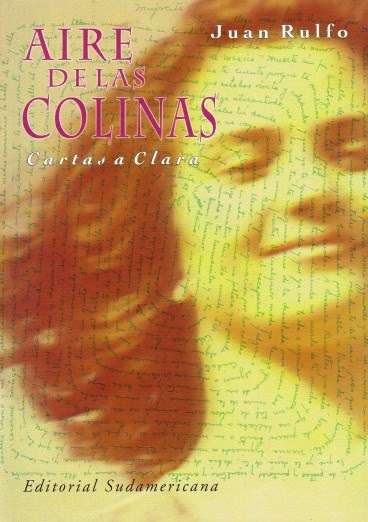
Idioma original: español
Year of publication: 2000
Valuation: I have no idea
Among the many infamous figures that my beloved Mexico has produced, the last year has seen the emergence of the “King of Morbidity”, Dani Flow. His lyrics are chanted by children at school festivals and his music is used to measure the appropriate rhythm to give cardiac massage to an unemployed person. Is Dani Flow a genius? Don’t know. Are his fans idiots? Some. Is his music a reflection of the decline of family values and good manners? What is not today? Was the use of sexually explicit lyrics key to his success? Probably. Regardless of the above, it is a fact that it has managed to connect with millions of young people, mainly middle-class Mexicans, desensitized to sexual content, anxious and depressed, polyamorous and, like all young people, with great contempt for the elderly. I do not intend to do a musical analysis of his songs, or a sociological analysis of his influence on the psyche of youth, but there is something that interests me a lot: his naivety. “Naíf” is the word that comes to mind when I listen to Dani Flow’s lyrics (be careful, not the music, that’s another story).
I’ve seen some interviews that have been done with Dani Flow, and it’s clear that he’s someone who doesn’t really have anything interesting to say. I wonder, how does someone with such simple ideas make songs whose lyrics resonate with millions of people? The most obvious answer would be ‘shock value’. The infinite number of synonyms for sexual organs and intercourse is an easy way to attract attention, something that can be harmful in someone who does not have the charisma of Dani Flow, but he has managed to add the necessary humor so that all the vulgarities that says pass as ‘occurrences’. On the other hand, I believe that his phrases have captivated his audience due to the simplicity with which he conveys his feelings with such primitive ideas.
Even though Dani Flow has been making music for years, he made the quantum leap with ‘Las que no tenga papá’ and, upon finding the right formula, he continued with four or five other songs of the same nature: ‘Abre las patotas’, ‘Martillazo’, etc. His songs before the ones mentioned above are composed with phrases from any generic rapper/reggaeton singer, boasting about his neighborhood, his money, his ‘viejas’. With one notable exception, a love song dedicated to his wife, with whom he now has a young daughter. Despite his best romantic intentions, that song, titled ‘Te vi’, is unbearably corny. I get the impression that Dani, not having any cultural background, uses pre-made phrases, which seem romantic to him, in the purest style of ‘Baby te quiero, oh’ by the now forgotten Niga.
It is not until he decides to get out of his moorings that he writes his most romantic songs, where he authentically expresses his feelings in the only way he knows how (and can): with pure vulgarities. She went from the false “I saw you and I knew you were the love of my life” to the sincere and heartfelt “I really like you, güilota.” Dani Flow’s naïve style to express her feelings towards what is important to her at her young age (money, sex, fame), reminds me of a beautiful scratched colored drawing. Like when children say swear words without really knowing their meaning. Of course, he knows it, but in my opinion, the misogyny and depravity of her lyrics are only the result of her ignorance and, why not, her naivety.
Now, I apologize to those who have read this far. Why did I include this text about Dani Flow in this review of one of the greatest Mexican writers, Juan Rulfo? First, obviously, for the ‘shock value’. But also, I have another reason. Rulfo was a master of the story (‘El llano en llamas’ is the best book of stories I have ever read) and the novel. I think that’s out of the question. But here we have a totally different book: a series of letters, published posthumously, sent to his wife when he was on one of her trips. I want to believe that as shy as Rulfo was, it did not occur to him that his love correspondence was going to be read by thousands of people after his death, so, when writing them, he had no interest in creating a masterpiece of literature. He just wanted, in the most honest and simple way, to express his love for his dear wife, Clara. You can see a big difference between his stories and his letters. What moves me most about those words to Clara is the naive nature of the phrases she chooses to tell her that she loves her and that she misses her (she calls her ‘little girl’ 🥺). And by this I don’t mean corny words, but rather its naivety and simplicity. To give you some examples (hoping that you are encouraged to read them): “I dreamed that I was kissing your eyes, just above your eyelashes, and it turned out that my mouth tasted like sugar,” or “my mother died 15 years ago; Since then, the only similarity I have found with her is Clara”, or “I have also concluded by knowing that the cheeks, the right and the left, both, have a peach flavor, perhaps because some of that flavor rises from the heart” . These words, which seem to be said by a child to his mother, seem more tender and endearing to me than any love song, words that are inconceivable in a person as unsociable as Rulfo.
This book is clearly pure fan service. But fans will find this other side of Juanito, the loving husband, very interesting.
Now, I don’t intend to compare Rulfo’s literary qualities with Dani Flow’s lyrics, but I can’t help but think that if it were in a different context, Dani Flow would change the “bitch, stupid, bastard, I love you” for “Clara: today I have planted a peach pit in your name.”
Source: https://unlibroaldia.blogspot.com/2024/06/juan-rulfo-aire-de-la-colina-cartas.html


